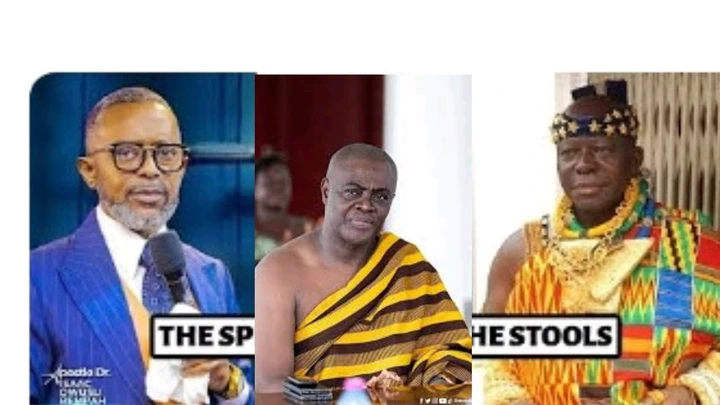Prophet Owusu Bempah has once again captured national attention with a bold revelation regarding Otumfuo Osei Tutu II, the Asantehene.
In his latest prophetic declaration, Owusu Bempah asserted that Otumfuo is the most powerful chief in Ghana, warning that all must be cautious in dealing with him—especially Dormaahene. His statement has ignited discussions across traditional circles, political spheres, and social media, with many analyzing the implications of his words.
Owusu Bempah, known for his controversial yet influential prophecies, reportedly emphasized that Otumfuo’s authority transcends mere traditional leadership, positioning him as a formidable force in Ghana’s governance and cultural affairs. His remarks have sparked debates among traditionalists, political analysts, and the general public, with some viewing his statement as an affirmation of Otumfuo’s longstanding role in Ghana’s traditional leadership, while others see it as a strategic move that could reshape perceptions of authority among the country’s chiefs.
The relationship between Otumfuo and Dormaahene has been a subject of historical and contemporary discourse, often marked by moments of tension and differing perspectives on traditional authority. Owusu Bempah’s revelation adds another layer to this dynamic, fueling speculation about potential shifts in power and influence within the chieftaincy structure. His specific mention of Dormaahene has raised eyebrows, with many wondering whether there are underlying tensions that could escalate further.
While some traditionalists have welcomed Owusu Bempah’s statement as a recognition of Otumfuo’s unparalleled influence, others have questioned the timing and intent behind the prophecy. Some argue that such declarations could deepen existing divisions within Ghana’s chieftaincy system, while others believe they serve as a reminder of the historical and cultural significance of the Asantehene’s role.
The prophecy has also sparked reactions from political figures and cultural commentators, with some calling for a deeper examination of the power dynamics within Ghana’s traditional leadership. Others have dismissed the statement as mere rhetoric, arguing that traditional authority should be respected without unnecessary sensationalism.
As discussions unfold, many are eager to hear responses from key stakeholders, including traditional councils and political figures. Will this revelation lead to a reassessment of chieftaincy dynamics in Ghana, or is it merely a prophetic observation with no tangible consequences? The coming days will reveal the impact of Owusu Bempah’s statement on the nation’s traditional leadership landscape.
https://youtube.com/watch?v=rdIQTt8ohrA%3Fshowinfo%3D0











